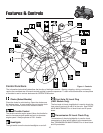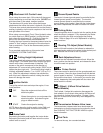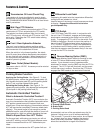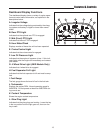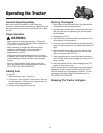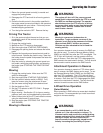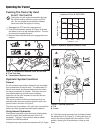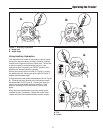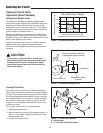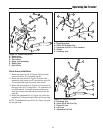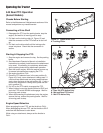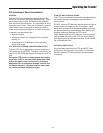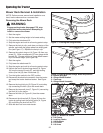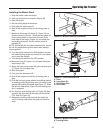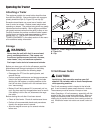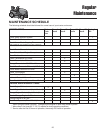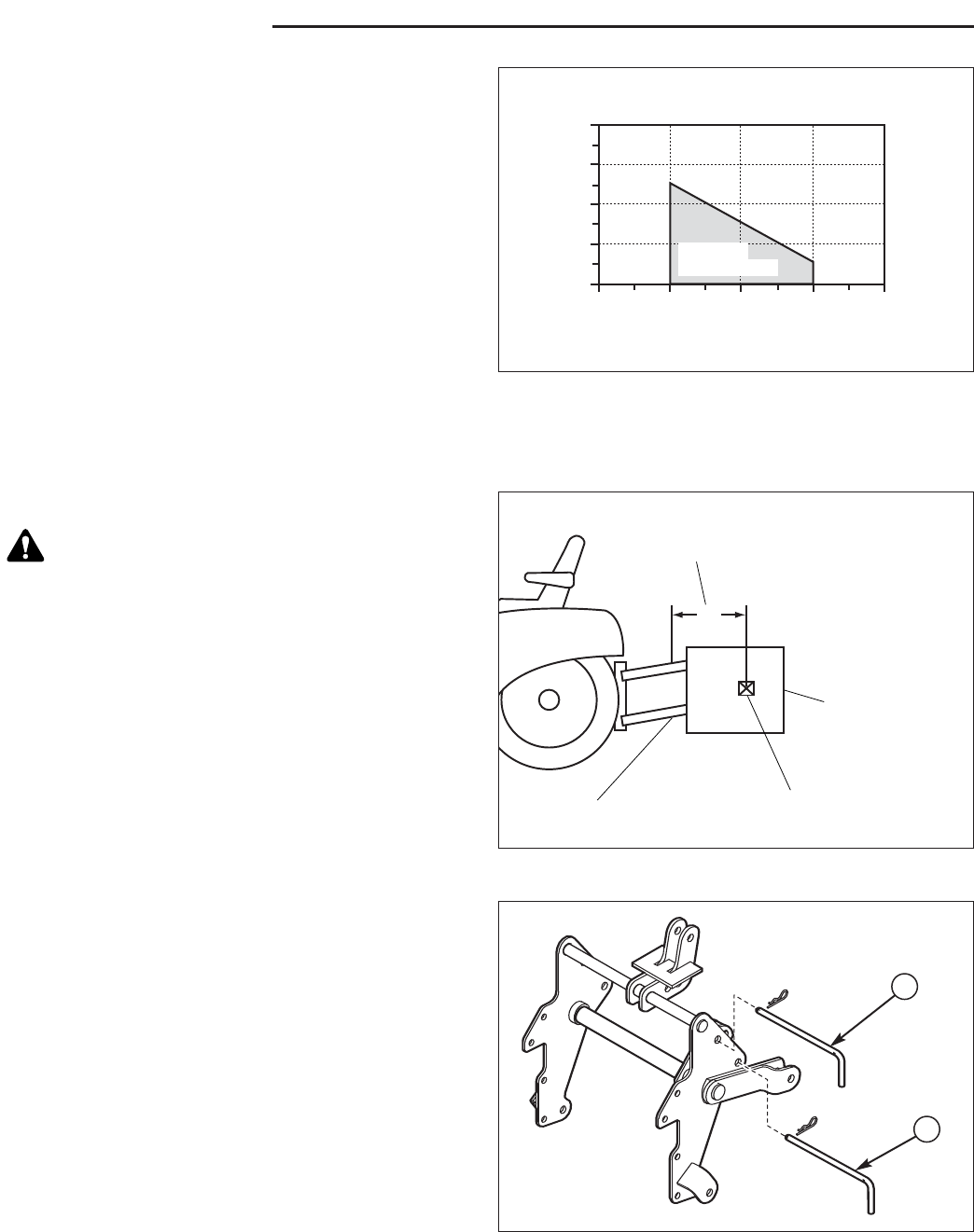
18
Operating the Tractor
0
200
400
1'0'
2'
600
3'
4'
Max. Attachment Weight (Lbs.)
Max. Attachment Weight
Distance from End of Hitch Arm
to Attachment Center of Gravity (Feet " ")
X'
Weight Range
Approved
End of Hitch Arm
Attachment
Attachment's Center
of Gravity
X'
Distance from End of Hitch Arm
to Attachment Center of Gravity
Optional 3-Point Hitch
Operation (Select Models)
Attachment Weight Limit
The maximum allowable attachment weight is deter-
mined by the gross weight of the attachment verses the
distance from the end of the tractor hitch arm to the
attachment’s center of gravity (Figure 10). The further
an attachment’s center of gravity is from the tractor, the
more leverage is required to raise it.
Measure the distance from the end of the hitch arms to
the attachment’s center of gravity (Figure 10) and use
the graph in Figure 9 to determine if an attachment is too
heavy to be used with your tractor.
Always use a front weight carrier and 50 lbs. suitcase
weights when using a rear-mounted attachment.
Remove the front weights when the rear attachment is
removed.
Figure 10. Attachment Weight Limit
Figure 9. Attachment Weight Limit
A
B
Figure 11. Hitch Rod Positions
A. Rod Storage
B. To Lock Lift In Raised Position
Locking The Hitch
The 3-point hitch can be locked in the raised position.
When a rear attachment is locked in the raised position,
the tractor’s on-board hydraulic cylinder can be used to
lift mid mounted attachments without having to remove
the rear attachment. For example, if a tractor equipped
with a tiller is to be used for mowing, the tiller can be
locked in the raised position allowing the mower to be
installed and used.
To lock the 3-point hitch in the raised position:
1. Raise the attachment lift.
2. Remove the locking rod from its storage position (A,
Figure 11) and insert it below the hitch arms in the
locking position (B).
3. Secure with a hair pin clip.
CAUTION
Avoid injury! A machine with a 3-point hitch
attachment installed may become unstable when
the attachment is raised. Always drive slower
over uneven ground and when turning with the
attachment raised.



